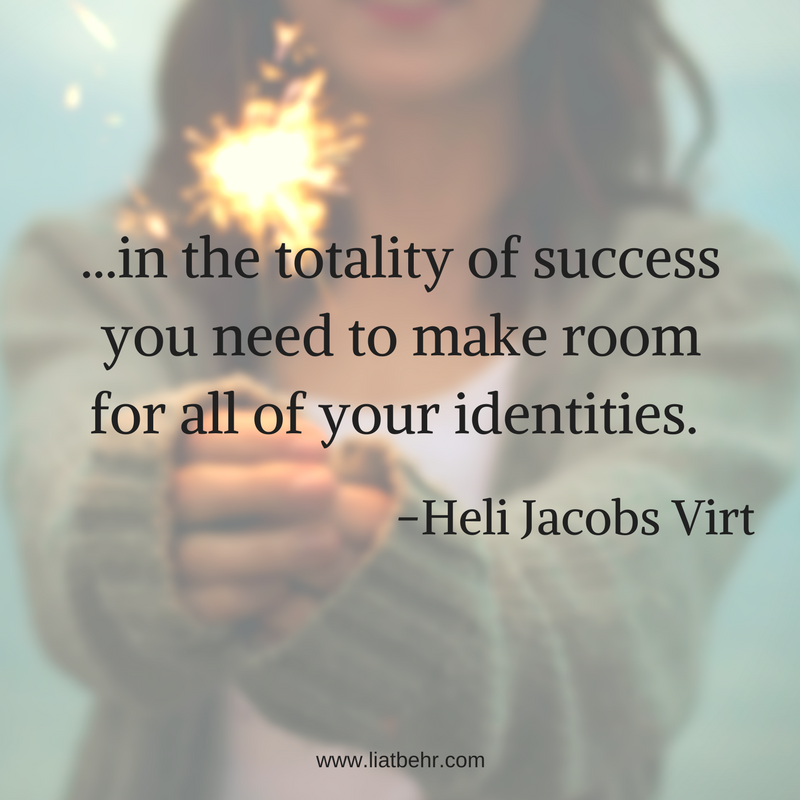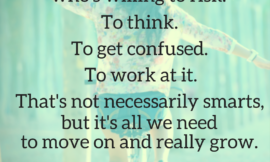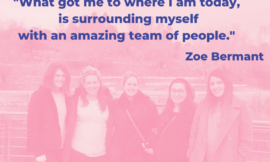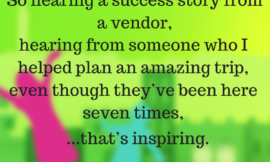How does a girl who grows up without a father and is sexually abused as a teen, go on to become a successful business women teaching confidence and business sustainability?
Heli Jacobs Virt, lost her father in the Yom Kippur War, when she was just a year old. Since then she’s grown to become a successful businesswoman. She is the CEO of Bina Yetera and Director at Yoda’at College for Business Sustainability, helping women and businesses meet their strategic goals. I met with Heli to discuss her thoughts on confidence, failure and success and feminism.
If you lack confidence – create it
As a girl and as a teen, Heli lacked confidence. It might have something to do with losing her father in war, it might have something to do with being sexually abused as a teenager. What’s for sure, is that even though Heli’s mother, and her father’s parents and siblings, and even her stepfather, did their best to imbue Heli with confidence, internally she still felt unconfident.
“I think that in my very deep inner experience I felt a loss of confidence. And that’s why I’m very occupied with the subject of confidence and security – financial security, job security, confidence as a parent – it’s something that really occupies me in my life; that people should feel secure.”
But Heli’s lack of confidence, coupled with her desire to stay away from the very complicated issues of her life, led her to understand that action was the best solution.
When one is in motion, constantly doing, one doesn’t have time to think. The real issues of life, our internal selves are kept too busy to let us know how they feel. In fact, perhaps through action, we beg our internal selves to keep quiet.
Though for Heli her internal self told her that if she doesn’t have confidence, then she’s got to go out there and create it. And so through constant action – the doing, the building, Heli created confidence.
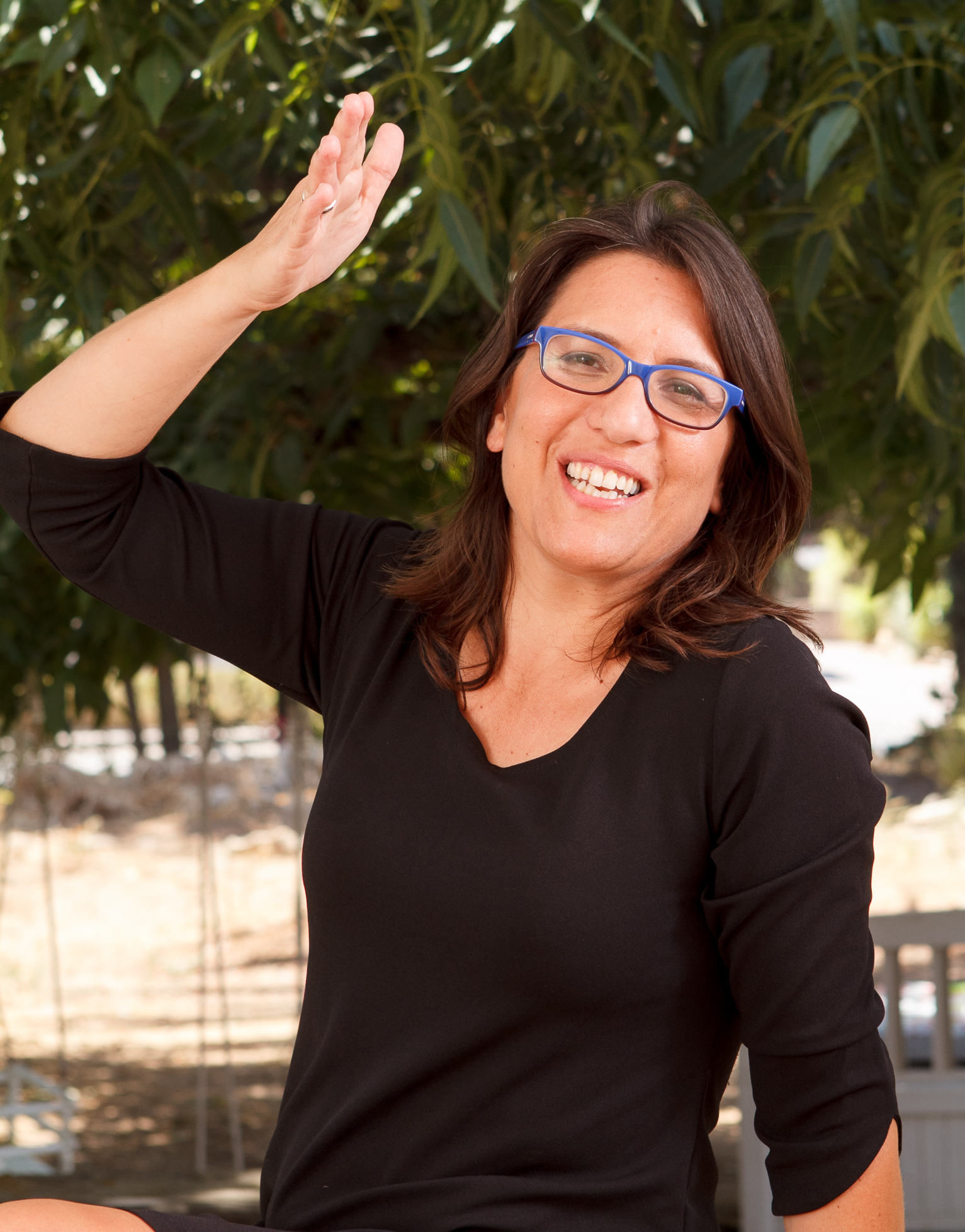
Whoever doesn’t know how to fail, doesn’t know how to succeed
Heli tells me that as a child she was wild. She would run and she would fall. And each time her paternal grandfather would say the same thing, “get up and I’ll pick you up.”
Till today, on very difficult days, Heli hears her grandfather’s words in her mind. And today Heli understands those words a bit differently: if you want to get up, you need a solid foundation that will help pick you up. You have to keep working, keep moving forward.
So Heli tells women:
“Try and try again. It will succeed. And it will fail. And it will be hard. Create a foundation that is good enough – emotionally, mentally and financially, so that you’ll be able to fail. Who can [afford to] fail? Whoever prepared a foundation for failure.”
Preparing that foundation for failure is vital. And the way to do it is by developing who you are. Every single facet of yourself:
“Today I understand that in the totality of success you need to make room for all of your identities; your emotional identity, your intellectual identity, your sexual identity, your maternal identity. You need to make room for all those facets, all those layers. Because if you lock a part of yourself, it will come back in a way that won’t be beneficial to you.”
Heli has experienced failures; she’s lost money and she’s invested in ventures that didn’t succeed. And though those are objective failures, Heli experiences them not as failure, but as part of the journey. Failures are part of the road to success.
What does it mean to be a post-feminist?
When Heli was a girl, she tells me, she was a feminist. She wanted women and men to be equal. But since then, she’s changed her mind. What she really wants is equal opportunity.
I ask her why a post-feminist, and how she understands post-feminism.
“Today feminism is about hating men,” Heli explains and she’s quick to provide an example.
“Let’s say people get divorced and the woman says ‘the child will always be with me.’ And the man says, ‘why?’ If you’re a feminist, share the kids. The man wants to raise his kids, he wants joint custody. And the leading feminists are fighting it. They say ‘No. The child only needs to be with his mother.’ But why? If you’re a real feminist you think that men and women are equal – they’re equal in everything.”
Heli also tells me that she believes that the long period of sexual abuse that she sustained not only affected her life, decisions, and identity. It also affected her desire to stand strong and her feminist outlook.
“I think it’s one of my methods of coping with my sexual abuse – developing my feminine identity independently.”
I’m so grateful to Heli for her valuable time. I learned so much from her during the interview.
TAKEAWAYS
During our conversation, Heli and I covered a lot. Here is some more valuable information that came out of our talk.
1. What was the best piece advice you ever received?
Because I have many significant figures in my life, I want to share three pieces of advice that I received:
i. My mother said: “cry, it will wash you.” You need to cry. For years I didn’t.
ii. My grandfather said: “get up and I will pick you up.”
iii. The best piece of advice I want to give is “Devote yourself. You’re not alone on this globe.”
[In Hebrew the sentence has a double meaning – catch the ball. You’re not alone with it.]
2. What was your best investment in time, money or energy?
My education. My family. My jeep.
i. My education is what enables me to earn a very good living.
ii. My family is what enables me to love and recognize myself.
iii. My jeep is what enables me to think.
3. What’s your best time productivity tip?
Use a calendar. Have a good secretary. Set goals each day. Set financial goals – how much money you want to earn each day. At the end of the day, review what you did with your day.
4. What 3 books do you think every woman needs to read?
Just 3 books is a punishment for me. I want to recommend 2000 books.
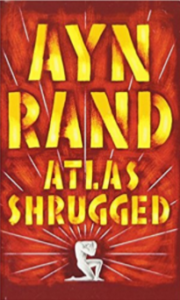
i. Atlas Shrugged by Ayn Rand
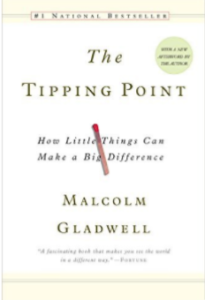
ii. The Tipping Point by Malcolm Galdwell
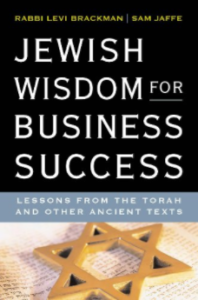
iii. Jewish Wisdom for Business Success by Levi Brackman and Sam Jaffe
5. What does every woman need to know about success?
- Success is dependent upon you
- Nobody will give you success if you don’t take it. Success doesn’t roam the streets. You have to take it.
- There’s no formula for success. And there’s no such thing as objective success. Success is subjective. Whatever you feel is success, is success.
